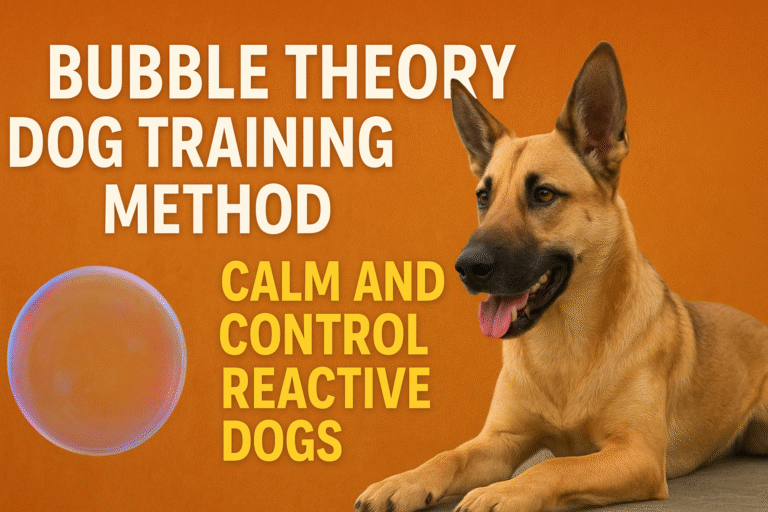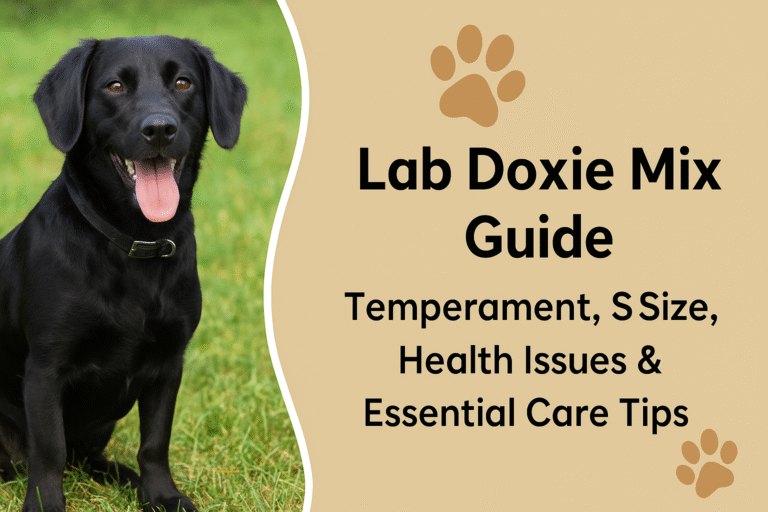Meeting Your Dog’s Needs: The Foundation of Responsible Pet Ownership
Looking after a dog involves much more than just offering meals and a place to stay.
Meeting Your Dog’s Needs: The Foundation of Responsible Pet Ownership is about understanding your dog’s physical, emotional, and social requirements—and your role in fulfilling them. When these needs are met with consistency and compassion, you’re not only caring for your pet—you’re cultivating a lifelong, trusting partnership.
Why It’s So Crucial to Look After Your Dog
Dogs become part of a huge, important, lifetime commitment. Being a good pet parent involves providing your dog good food, water, medical care, shelter, affection, and proper mental exercise suitable for your dog’s age, breed, and health.
Fulfilling these needs supports your dog’s overall physical well-being and emotional balance. A well-exercised, well-stimulated, well-trained, and healthy dog will never get anxious, behaviorally unacceptable, or ill. The first and most important secret to successful dog parenting is meeting these fundamental but necessary needs.

Building Blocks of Smart Dog Ownership
Basic Needs: Physical
Physical Needs: Food, Shelter & Security
Diet & Proper Water
Regular feeding of a well-balanced diet for their size, age, activity level, and health status must be done. Water must always be fresh. Your veterinarian will recommend how to provide mealtimes for growth, energy, and overall good health.
Safe, Comfortable Shelter
Your dog requires a cozy, secure place to go to indoors or outdoors. Pet-proof your house: remove poisonous plants, out-of-reach wires, and cover surfaces from destruction. A calm, designated space or crate can serve as a safe haven where your dog feels comfortable and secure.
Medical Care & Wellness

Preventive Veterinary Visits
Those routine check-ups, immunizations, parasite control preventatives, dental checks, and medical examinations are the doctor’s orders. Regular veterinary checkups help detect health issues early and ensure your dog receives preventive care throughout their life.
Spay/Neuter & Identification
Spaying or neutering discourages unwanted litters and some behavior or health issues. Microchipping and id tags will bring your dog back home safely if lost. All these treatments also further greater good in preventing pet overpopulation.
Training, Socialization & Mental Enrichment
Behavior & Training Essentials
Obedience & Communication
Invest day-one training cash. “Sit,” “stay,” or “come” commands are safety precautions and help create discipline. Positive reinforcement—treats, praise, consistency—grasps the most out of it. Training is a mutual exchange that helps your dog learn and understand your expectations.
Socialization with People & Pets
Slowly introduce your dog to novel situations—strangers, other dogs, places—to establish confidence and not aggression or fear. Early socialization results in improved adjustment in life in the long term and less likelihood of reactivity or fear responses.
Physical & Mental Stimulation

Regular Exercise
By age, breed, and activity level, most dogs need a daily run, play, or walk. Variable route walking, easy training games, puzzle toys—these engage their minds and keep them out of boredom-type problem behavior like barking, chewing.
Enrichment & Playtime
Provide stimulating toys and play that are commensurate with your dog’s intelligence quotient and breed profile. Chew toys, nose games, or dog-sport training (agility or flyball) stimulate and challenge play. Provide daily interactive playtime in an effort to establish the relationship.
Emotional Bond & Lifestyle Commitment
Building a Trusting Relationship
Spend quality time with your dog every day. This can be walking, petting, play, or just hanging out with them. Learning your dog’s preferred way of being shown love—is often called their “love language”—makes your relationship stronger and is the foundation of long‑term trust.
Financial & Long‑Term Planning
Some preparation is involved in having a dog. Food, vet bills, emergency bills, and grooming are all paid out-of-pocket, and future costs can be expensive. Budget up front—and put money aside for pet insurance or a pet savings plan to pay for surprise bills.
Practical Guide: Meeting Your Dog’s Needs Checklist
| Category | Key Actions |
|---|---|
| Diet & Hydration | Balanced diet, vet-recommended diet, fresh water always available |
| Shelter & Safety | Pet-proofed dwelling, quiet area to sleep, temperature regulation |
| Veterinary & Preventive Care | Wellness checks and vaccinations, parasite prevention, spay/neuter, ID/microchip |
| Training & Behavior | Basic obedience classes, positive reinforcement training, socialization |
| Exercise & Enrichment | Daily walk, playtime, stimulating toys, breed-specific play |
| Emotional Bond & Quality Time | Contact with your dog every day, affection on floor on your dog’s terms |
| Financial & Lifetime Planning | Budget for regular and emergency expenses, budget future care |
FAQ – Answering Frequently Asked Questions
What is my dog’s perfect diet?
Select a complete, balanced diet that suits your dog’s age and development stage. Your vet can help tailor recommendations based on your dog’s breed, size, and health status.
What exercise?
30–60 minutes of daily exercise are required by most dogs, but high-energy breeds require more. Don’t forget mental stimulation!
Where do I start training and socialization?
Start with basic commands at the start and introduce your dog to new places, strangers, and other animals in a positive reward system.
How often should my dog visit a vet?
At least yearly. Puppies and older dogs might need checkups every six months or more, along with preventive drugs as advised by your veterinarian.
If I’m going to be gone for sometime or have to go out and can’t be held responsible for my dog?
Have in hand at all times a backup, caregiver, or boarding arrangement. These would be quickly arranged by shelters or agencies for temporary care in this situation.
How can I keep my pet healthy and happy?
Search for active play, proper weight, glossy healthy coat, bright eyes, good appetite, and friendly outgoing personality. Any problems should be discussed with a vet.
Meeting Your Dog’s Needs: The Building Blocks of Ethical Pet Care is more than feeding and exercise—it’s caring for all that influences your dog’s physical and emotional well-being. From eating and vet visits to training, enrichment, emotional bonding, and planning, being an educated, competent caregiver builds trust and joy in your life as in your pet’s.







